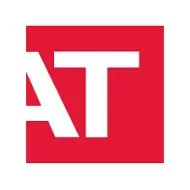On Jan. 1, 2021, Congress voted to overturn President Trump's veto of the National Defense Authorization Act (NDAA), which brings changes to the U.S. Securities and Exchange Commission (SEC or Commission) as well as beneficial ownership disclosure requirements.
With Little Fanfare, the SEC is Given a Game-Changer
Buried among the voluminous provisions of the NDAA for Fiscal Year 2021 (H.R. 6395) is Section 6501—which significantly extends the reach of the SEC to seek disgorgement in connection with potential violations of the federal securities laws.
Prior to this provision included in the NDAA, there was no explicit statutory provision granting the SEC the ability to obtain disgorgement in the federal court context, leaving the Commission to rely on the "equitable relief" provision of the Securities Exchange Act of 1934 (the Exchange Act) to justify its pursuit of ill-gotten gains.
That implied authority to seek disgorgement as an equitable remedy had been under attack by the U.S. Supreme Court in recent years: First with its 2017 ruling in Kokesh v. SEC, which narrowed the window of disgorgement to five years; and then with the Court's 2020 holding in Liu v. SEC, affirming the Commission's authority to seek disgorgement, but limiting its application as an "award that does not exceed a wrongdoer's net profits."
In an apparent "patch" of those judicial constraints, Section 6501 of the NDAA amends Section 21(d) of the Exchange Act to provide the SEC with the explicit statutory authority to seek disgorgement as a remedy for unjust enrichment gained through a securities law violation. The provision also establishes up to a 10-year statute of limitations for disgorgement, and a 10-year statute of limitations for other equitable remedies.
This significant expansion of the SEC's powers will likely lead to increased SEC enforcement actions in federal court in light of the recent challenges to the constitutionality of the Commission's appointment of its administrative law judges.
Beneficial Ownership Disclosure Requirements to Significantly Expand in the U.S.
As a result of the congressional override of President Trump's veto, U.S. and non-U.S. companies alike will soon have to comply with additional beneficial ownership disclosure requirements. This change is significant, as it will shift the burden and responsibility in identifying beneficial ownership information from financial institutions to the companies themselves. While the requirement is encompassed within the NDAA, it is not limited to defense or defense-related companies. It applies to all companies, corporations and legal entities registered to do business in the U.S., whether or not they are involved with international activities.
The NDAA for Fiscal Year 2021 (H.R. 6395) and its Senate counterpart will impose a noteworthy expansion to the current beneficial ownership disclosure requirements. The relevant beneficial ownership portions are contained in Title LXIV and have been named the "Corporate Transparency Act."
The Corporate Transparency Act will require "reporting companies" to confidentially report the beneficial ownership of their common stock to the Treasury's Financial Crimes Enforcement Network (FinCEN). The definition of a reporting company in this context is quite broad. It includes any corporation, limited liability company or other similar entity that is created by the filing of a document with a secretary of state or a similar office under the law of a state or Indian tribe; or is formed under the law of a foreign country and registered to do business in the U.S. by the filing of a document with a secretary of state or a similar office under the laws of a state or Indian tribe.
Although that definition covers nearly all such entities, there are a number of exceptions for companies that are otherwise regulated, such as publicly traded companies, financial services companies and public utilities.1
The Corporate Transparency Act requires disclosure of those individuals who directly or indirectly own 25% or more of the ownership interests of an entity or who exercise "substantial control" over the entity. Each reporting company must submit an annual report to FinCEN containing certain information regarding the reporting company's beneficial owners, including: (1) full legal name, (2) date of birth, (3) current residential or business street address, and (4) unique identifying number from an "acceptable identification document."
FinCEN has one year from enactment of the NDAA to promulgate regulations implementing the Corporate Transparency Act. Existing companies will then have two years from the time that final regulations are promulgated to begin reporting beneficial ownership. However, reporting companies formed or registered after the effective date of regulations must submit the report at the time of formation or registration to FinCEN.
The registered information will not be publicly available, and the Corporate Transparency Act imposes penalties for the unlawful disclosure of collected information. However, the Act permits FinCEN to disclose beneficial ownership information, upon request, to (1) U.S. federal law enforcement agencies, (2) U.S. federal law enforcement agencies requesting information on behalf of a non-U.S. law enforcement agency, or (3) with the consent of the reporting company, or a financial institution in order to meet customer due diligence requirements. Additionally, FinCEN is permitted to disclose beneficial ownership information to state, local and tribal law enforcement agencies pursuant to a court order authorizing the agencies to seek the requested information.
Our attorneys will continue to monitor for any developments on these topics and others. In the meantime, should you like to know whether your company is defined as a reporting company under the Corporate Transparency Act, or if you have any other questions, please contact one of the authors or your regular Armstrong Teasdale attorney.
Footnote
1. A complete list of excluded companies can be found in § 5336 (a)(11)(B), at page 1220 of the NDAA.
Originally Published by Armstrong Teasdale, January 2021
The content of this article is intended to provide a general guide to the subject matter. Specialist advice should be sought about your specific circumstances.



